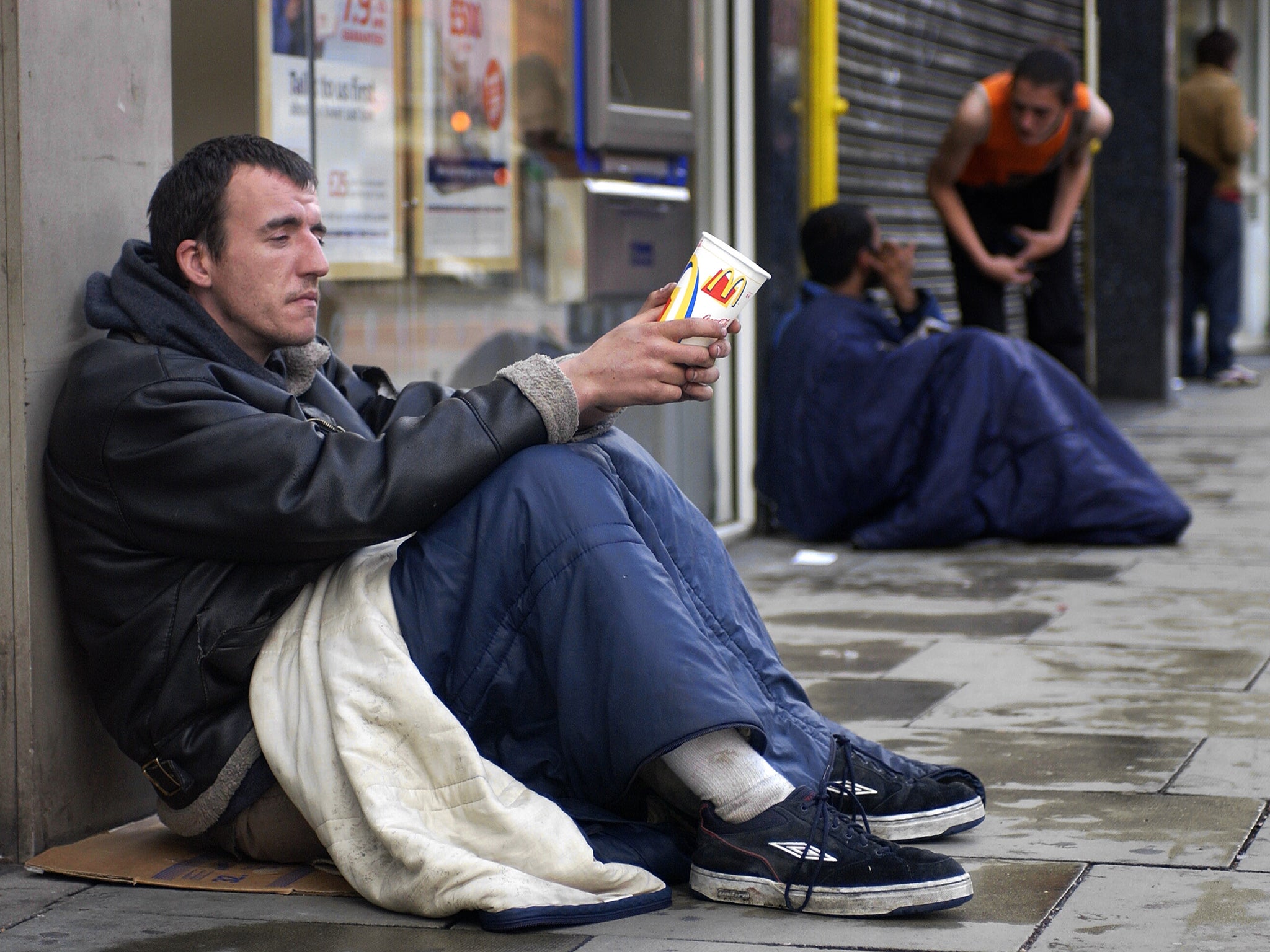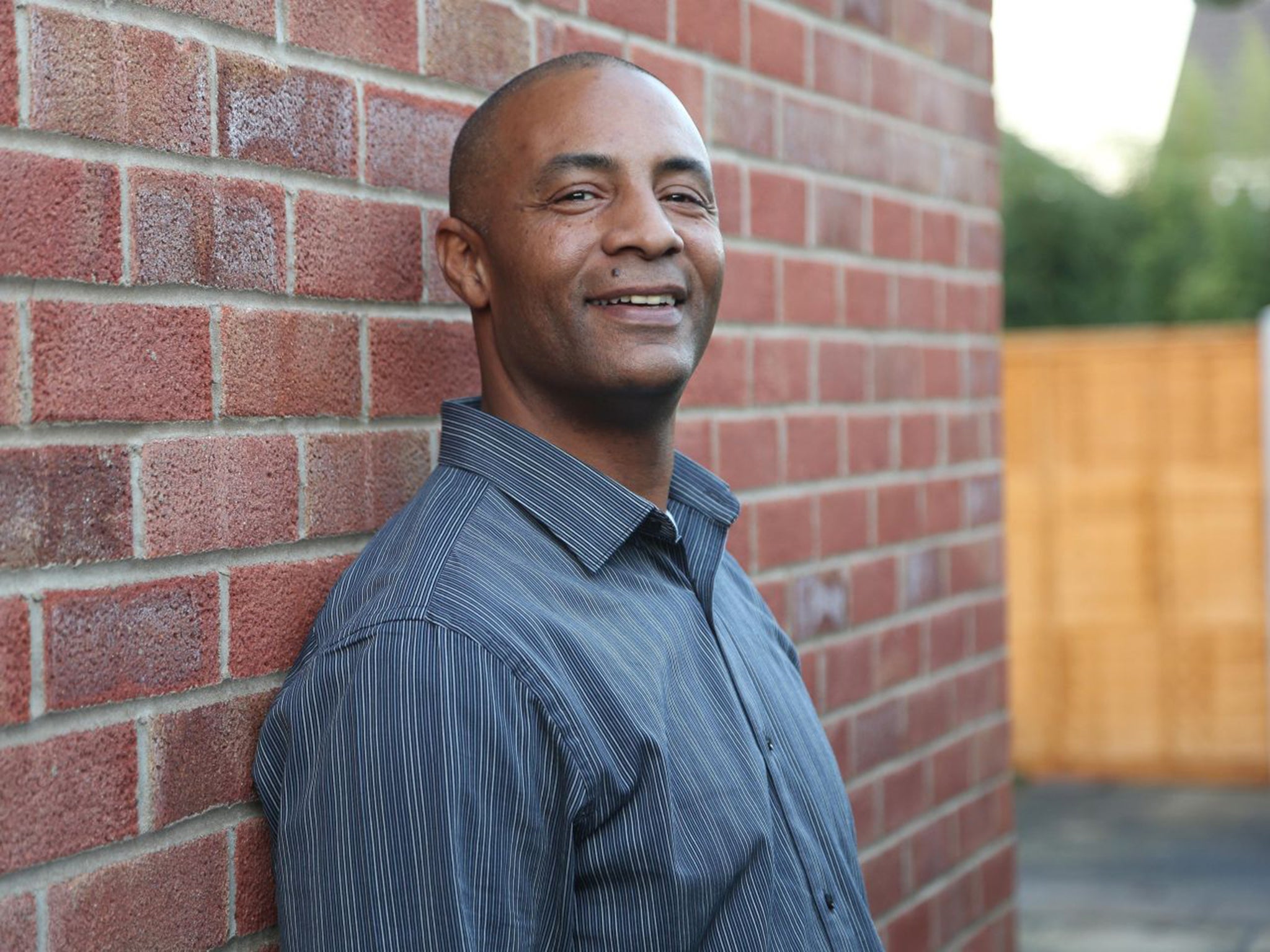Homeless Veterans appeal: The rise of the working poor: when having a job cannot prevent poverty
It is not just unemployed ex-servicemen and women who need help from veterans' charities

The “vast majority” of veterans who need financial aid to prevent them from slipping into homelessness are unable to make ends meet despite having jobs, the head of a leading military charity has revealed.
Hugh Milroy, the CEO of Veterans Aid, a front-line charity fighting homelessness among the country’s ex-servicemen and women, said about 80 per cent of its active cases could be described as “working poor” – people who are in employment but still fall below the poverty line.
Staff at the charity, one of two being supported by The Independent on Sunday’s charity appeal, have observed a marked change in the kind of person seeking help over the past two years. The proportion of working poor on the charity’s books has been rising rapidly, they said.
“They are people who simply cannot afford to live and work. We’ve had one or two really bad cases where whole families could have ended up on the streets if we hadn’t intervened,” Dr Milroy said. “This is a really serious issue, and it isn’t going away. Life in Britain is complex and expensive. Some people simply can’t afford their rent and end up sleeping in their car, even though they’ve got a job. You cannot sustain your life like that.”
The charity recently helped a single father with three young children who had been given 24 hours to move out of his flat after accruing debts through a payday loans company. Veterans Aid gave him money for a deposit on a new property and guaranteed his rent for six months. “Had we not, they would have been on the streets,” Dr Milroy said.
According to research by the Joseph Rowntree Foundation (JRF), more than six million people in the UK belong to working households that are also in poverty. A report published in November showed a big rise in the propor- tion of adults under the age of 25 who were in poverty compared with 10 years ago. More people in poverty are also living in privately rented housing than previously, the research found.
“The changes in the labour market over the past few years have led to an increase in part-time work and low-paid self-employment, which means that getting a job does not necessarily mean getting out of poverty,” said Chris Goulden, head of poverty research at the JRF. “Without action by the Government and employers to address this as part of a wider anti-poverty strategy, this trend is likely to have serious consequences for the next generation.”
Dr Milroy also warned that some military charities set “income thresholds” which might bar them from helping people who are in employment – even if they are technically still in poverty. He said that such charities should examine their policies.
John Boyle, whose role as head of outreach at Veterans Aid is funded by the charity SSAFA, said some people needing help were on zero-hours contracts and had seen work dry up over Christmas, leaving them unable to pay the rent. “If you combine that with a relationship breakdown, they can easily end up without a front door,” he said.
While the charity had previously encountered many veterans solely relying on benefits, most cases now had a job, he added. “Normally, they’re quite able, but they just need a bit of helping paying for a deposit or a rental advance for a flat,” he said.
ABF The Soldiers’ Charity, an umbrella organisation which gives grants to more than 5,000 people each year and is also being supported by The Independent on Sunday’s appeal, said it often received requests for assistance from working veterans who still did not have enough money to cover “basic essentials”.
“This can be for anything from funeral costs, household appliances or boiler repairs – anything which for them is a crisis and their usual household income simply cannot cover,” said Brigadier Robin Bacon, the charity’s chief of staff.
A spokesperson from the Department for Work and Pensions said: “Overall, work remains the best route out of poverty and the number of people facing in-work poverty has fallen. We have taken action to support those on lower incomes, including cutting income tax, freezing fuel duty and cutting energy bills.”
Case study
Christopher Cole, 51, from London, spent three years in the Army but left in 1982. When he was struggling to pay the bills a few years ago, he was housed by Alabaré in Bristol, the largest provider of accommodation for working-age homeless veterans outside the capital. He has now moved home and works as a lorry driver.
“My father was in the RAF and I was brought up as a military child. Joining the Army was like going from one institution to another. It was a difficult time, adjusting to life as a civilian. I felt abandoned; all the support network had gone. My father got ill, and I ended up in debt, paying for his funeral. I got myself into a trap. I was living in London, but my boiler had broken down and I couldn’t afford to pay for it to be fixed, so I spent a winter freezing in the house. I didn’t really have enough to feed myself.

“When I spoke to Alabaré, it was like someone reaching an arm out. They provided me with a home, encouragement and self-belief. Soldiers don’t want to go cap in hand to anyone, but sometimes you need to if you stumble.”
Chris Green
Join our commenting forum
Join thought-provoking conversations, follow other Independent readers and see their replies
Comments